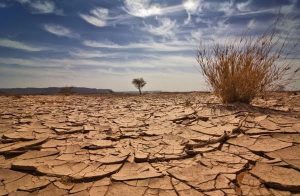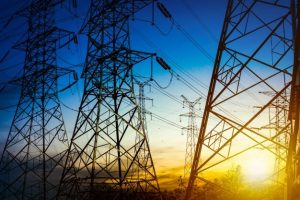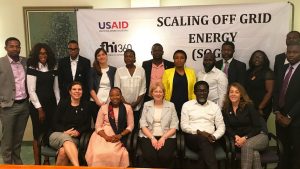By Teina Teibowei and Ifeoma Malo
Recognition of energy access impact on women is growing, and nowhere is this shift more evident than in Sub-Saharan African countries. Women are emerging, not just as consumers of a new wave of innovative energy access products and services, but also as leading entrepreneurs and leaders – shaping the industry. The International Energy Agency (IEA) shows that about 600 million people in Sub-Saharan Africa lack access to electricity and rely on traditional energy sources like wood, charcoal, dung and agricultural residue for cooking and heating. Relief Web further estimates that 70 percent of people living in poverty in rural areas are women and girls and lack of access to energy constitutes a large part of this poverty. A recent United Nations study shows that women face the worst consequences from lack of access to clean and modern energy, particularly in developing countries. Women have to go through the time-consuming and physically draining task of collecting firewood and other sources of fossil fuel for their daily energy use. Furthermore, the World Health Organization, further states that there is noticeable rise in pollutant-based diseases, which includes respiratory illness.
The decentralized renewable energy (DRE) revolution in Nigeria has women playing central roles in the quick and broader adoption of clean energy. Women in Nigeria are driving the DRE movement, as investors, solar business owners, workers, policy-makers and entrepreneurs – owning rural DRE powered micro-enterprise. According to Solar Sisters, an organization working to empower women entrepreneurs through decentralized renewable energy; easy access to DRE technologies like basic solar lantern or larger stand-alone solar home systems, make significant differences in the lives of women. From cost savings, to time savings and more hours of light to run their homes and business – the ripple effect is truly impressive.
Beyond being just end-users of DRE products, women entrepreneurs are using renewable energy technologies to scale their business or become solar distributors. There are also a growing number of schemes targeted at women in Nigeria to adopt cleaner energy technologies. These transitions come with clear, direct benefits such as the replacement of smoky kerosene lamps with pico solar lamps; transition from firewood and charcoal stoves to cleaner cook-stoves. The impacts and benefits are also been seen in the reduction of indoor air pollution; solar-powered maternity and rural healthcare centers; and the availability of refrigerated vaccines which is leading to significant reduction in maternal death and diseases; and solar-powered boreholes for pumping clean water. More women are being recruited, trained and mentored as distributors and entrepreneurs in the market; with each woman earning a mark-up for selling a catalogue of solar energy and clean cook-stove. Even more women are taught to deploy these systems for productive usage; from fisheries to agricultural production and cold storage to starting solar-powered kiosks.
Moreover, women are demonstrating leadership in policy and shaping the vision of the sector. The Rural Electrification Agency (REA), Nigeria’s lead agency responsible for providing electricity to rural communities, is now headed by a woman for the first time in history. In her first six months in office, Ms. Damilola Ogunbiyi an Engineer by training and a Decentralized Renewable Energy policy maker and practitioner in practice has helped make Nigeria a lightning rod of international interest, co-hosting a recent mini-grid conference, and placing DRE at the center of the country’s electrification plan for the future.
Similarly, the executive board of the Renewable Energy Association of Nigeria (REAN) has two women on its three-person executive board including the Vice President Habiba Ali and Treasurer Hannah Kabir. Both women are also founders and owners of reputable DRE companies. Also helping to drive development of the sector is industry veteran Anita Nana Okuribido, the National President of the Council for Renewable Energy Nigeria (CREN).
The C-suite of the Nigerian DRE sector is also populated by women, including Fatima Ademoh, leader of Ajima Farms, a waste-to-energy initiative that uses biogas to generate electricity for off-grid rural communities; Vera Nwanze, the Nigeria country lead for Azuri Technologies, an international solar company; and Petra Egwuatu, a director at Astevens Group, a leading indigenous renewable energy company.
According to USAID report; studies in other business sectors have shown that investing in women and girls has a positive impact on productivity and sustainable growth. Improving women’s access to the renewable energy sector leads to improved development outcomes beyond the sector, including economic growth and better lives for families. Building on this premise, it therefore makes sense that there should be a collective effort to encourage women and girls to enter the DRE sector through educational scholarship, project financing grants, project recognition and awards. Another way is to raise awareness about the job opportunities available to women in the sector.
Power for All, a global campaign to promote decentralized renewable energy as the key to achieving universal energy access, also launched a women focused and led initiative in 2017, as a key platform to achieving energy access and rural development. Through the campaign’s women DRE campaign, women with SMEs and women traders are trained as distributors and end-users, whilst building the capacity of new women entrepreneurs, across rural and peri-urban communities across Nigeria to be a part of the DRE value chain. The Power For All campaign is largely led by women at both the global and local levels, we see the role of women as pivotal in driving energy access across communities in Nigeria. We therefore believe that placing women at the heart of the DRE- movement is a smart strategy for ending energy poverty faster.
Teina Teibowei is Nigerian Lead – Lead Stakeholders Engagement for Power For All
Ify Malo is Nigerian Country Campaign Director – Power For All






1 thought on “Women Poised to Lead Nigeria’s Clean Energy Revolution”
Undisputed. Damilola Ogunbiyi is the leader.
Comments are closed.